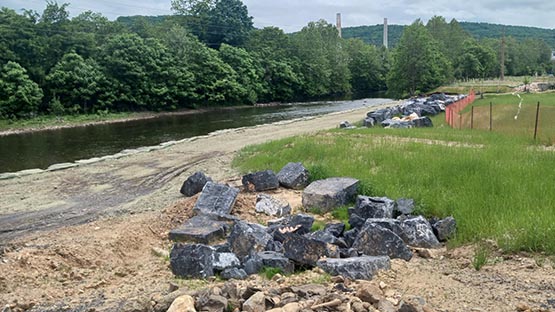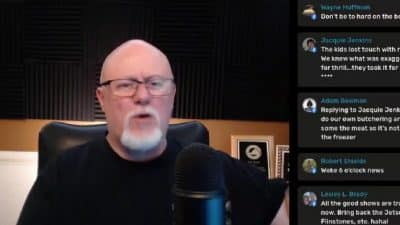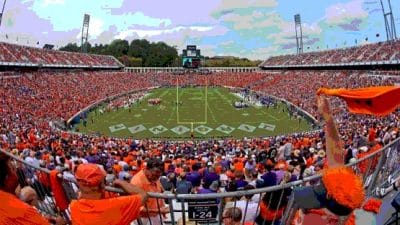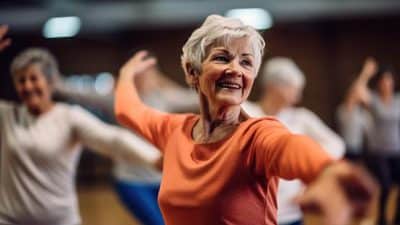
Dr. John MacKnight, UVA’s representative on the ACC COVID-19 Medical Advisory Group, is taking a “mildly cautious, optimistic approach” to the return to college sports normalcy in the fall.
“And only mildly cautious, because I think this is really going to work,” MacKnight said in an interview with “The Jerry Ratcliffe Show” this week.
“I think, very clearly, vaccines work, and there’s no question in my mind that the numbers that we have seen recently are a very clear reflection of the value that vaccines provide in our community. As soon as the vaccines were rolled out, and were widely embraced by our community, our numbers dropped off remarkably, and they have continued to drop off, and we’re continuing to build those vaccine numbers,” MacKnight said.
“I think by the time the fall arrives, it’s very reasonable for us to think that a very high percentage of our community and our fan base will be vaccinated individuals, and once you start to get in the neighborhood of that herd immunity number, somewhere around 75 percent or something like that, then the risk to individuals really drops off substantially. So you’ve got a real fighting chance to put full capacity fan bases together and not feel like you’re putting people in harm’s way to do that, particularly for outside events,” MacKnight said.
You’re seeing this feeling being advanced across the spectator sports world in the week-plus since the CDC announced the change in its guidelines regarding masking and social distancing for individuals who have been fully vaccinated against COVID-19.
MLB and MiLB teams, for instance, are moving in the direction of having full-capacity fan experiences next month, for instance, and the NCAA announced this week that it will allow full capacity at the 2021 College World Series.
Looking ahead to the fall, then, a full Scott Stadium “is a very reasonable expectation for us,” MacKnight said.
His day job has MacKnight serving as a professor of internal medicine at the UVA School of Medicine and as the medical director and primary care team physician for UVA Athletics.
MacKnight took on the role of representing the University on the ACC COVID-19 Medical Advisory Group in May 2020, back when, he admitted, “we had no idea what we were doing, nobody did.”
“We just completely took what limited information we had, and we sort of flew by the seat of our pants, and we hope we were using good judgment and try to put something together that made sense, and would be workable, and then you implement it, and then you just hope it flies,” MacKnight said.
Once the ACC, along with the bulk of the rest of the FBS, made the call in the summer to proceed with a football season beginning in September, it was very much touch-and-go.
“I think we what we learned through the fall was that sport-related things were less of an issue that you had to be careful,” MacKnight said. “In the weight room, when you had a bunch of folks gathered together, you absolutely had to continue to preach the importance of responsibility with regard to interactions with student-athletes, and anybody in the community away from athletics, Grounds, travel and all of these other things that were risks, that were unknown risks.”
As more was learned, athletics departments were able to “sort of reprioritize what clearly proved itself to be more problematic and what actually wasn’t nearly so problematic, and there was definitely a reshuffling of the list,” MacKnight said.
“The teams moving forward in the spring were already well-indoctrinated to all of those risk-mitigating strategies, some of them active, because we had fall sports who were turning around and competing again in the spring, so they already knew the deal,” MacKnight said. “They were already very much accustomed to that testing cadence, all that sort of stuff, but also because we did have a couple have sort of noteworthy blowups.
“The kids had some very tangible examples of what worked, and then what clearly did not work, and that allowed them, I think, to sort of recommit to the sense of like, if we either want to finish this season as fall sports, or if we want to have a successful and productive spring season, then we know what we need to do, and we know what works well, and we know what is going to work against us. We just have to be committed to making those things happen. I think what you’ve seen in the spring is a very high level of achieving that,” MacKnight said.
In the here and now, with spring sports wrapping up, the focus is on not letting the guard down.
“We’re still following through on all the usual protocols that we’ve had through the academic year, to wrap things up through the championship timeframe, and really elected to do that to be very consistent with the way we’ve managed things,” MacKnight said.
What helps there: the COVID situation, in terms of a massive decline in cases and a significant penetration in vaccinations, “is so much better,” MacKnight said.
“We’ve talked in previous conversations about working towards seeing light at the end of the tunnel, and hoping that it wasn’t a train coming at us,” MacKnight said. “Well, now, there’s really, really bright light at the end of the tunnel, and with the vaccine rollout and pretty good acceptance in our community, up to this point, really good interest amongst the student-athletes and staff, and so forth, all the right things are really kind of falling into place in the way that we envisioned it to get us to a place where we can reasonably work as normal moving forward, and certainly hoping that that will be the case as we get to our fall sports.”
Looking ahead to the summer, with student-athletes for fall and winter sports returning to Grounds to begin training for their seasons in June, MacKnight said “the general tendency here is the recommendation is likely to be that vaccinated individuals who are fully vaccinated individuals do not have to routinely tested for the fall, and that’s going to make an awful lot of student-athletes really happy.”
For context on that: we’re talking a ton of surveillance testing there that will fall by the wayside.
“Just as a reminder to the listeners, on our football team, as an example, as a high-risk sport, those 100-plus guys and staff and sports medicine staff were tested three times a week, every week, for the entire fall, at tremendous expense and logistical challenges from our athletic training staff to do those things and what have you,” MacKnight said.
“At that point, that was the right thing to do. As we talked about it, I think it played out very favorably, and we’re glad we did it. But it sure would be nice to be in a place where we don’t have to do that and still feel comfortable that everybody’s safe,” MacKnight said.
UVA will expect returning student-athletes and students to be vaccinated ahead of the summer and into the fall. From an athletics perspective, once a team reaches the 85 percent vaccination immunity threshold, “then your social distancing, your masking and your routine testing all will fade away, and I think that’s likely what most institutions, certainly in the ACC, and it’s already has been adopted in some other conferences, will adhere to,” MacKnight said.
“This is a major incentive for individuals to get vaccinated, to protect themselves, to protect their teammates, and to give us a great fighting chance to have things look pretty normal from a standpoint of how we assemble teams and fans for the fall,” MacKnight said.
Story by Chris Graham










